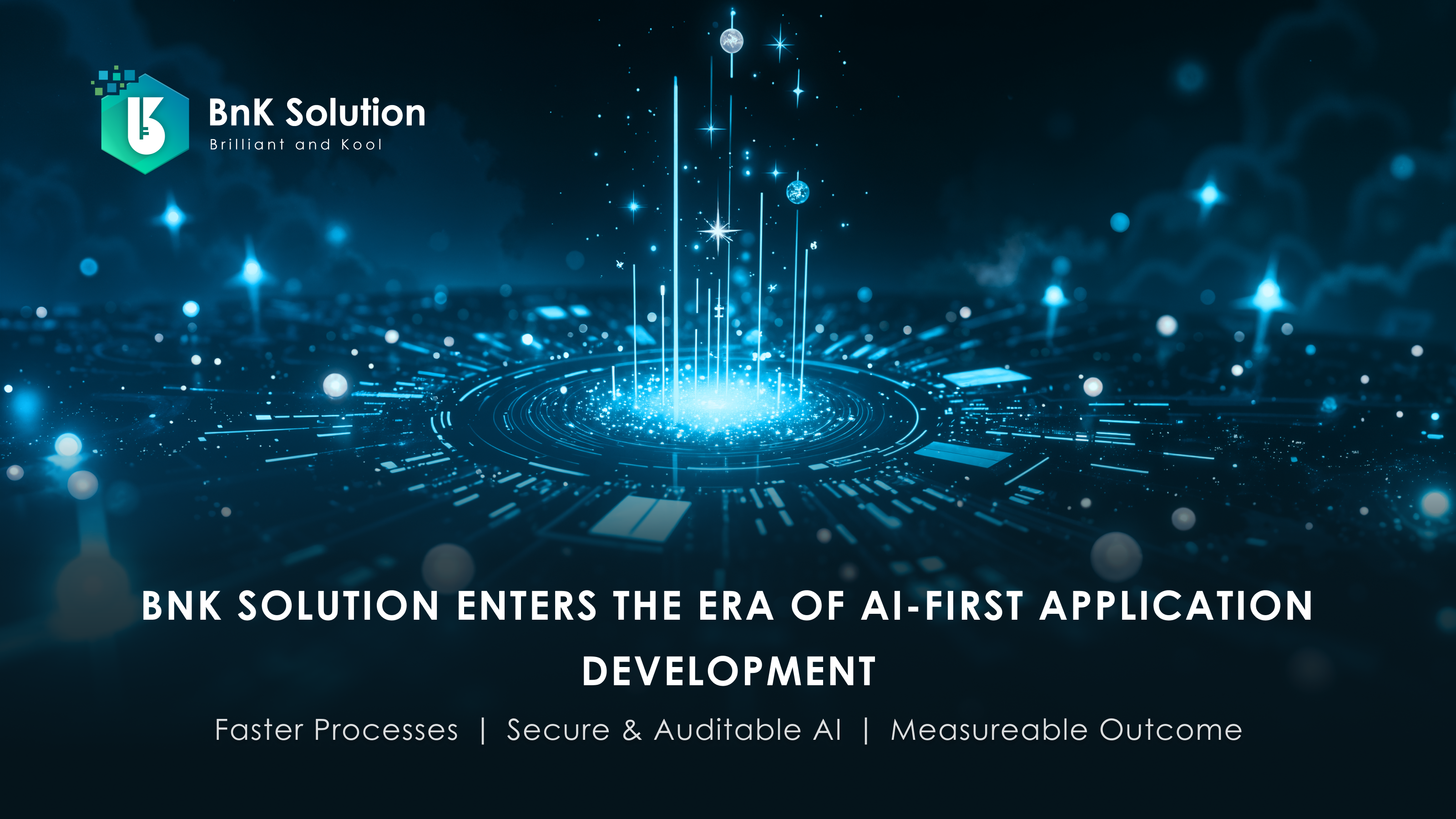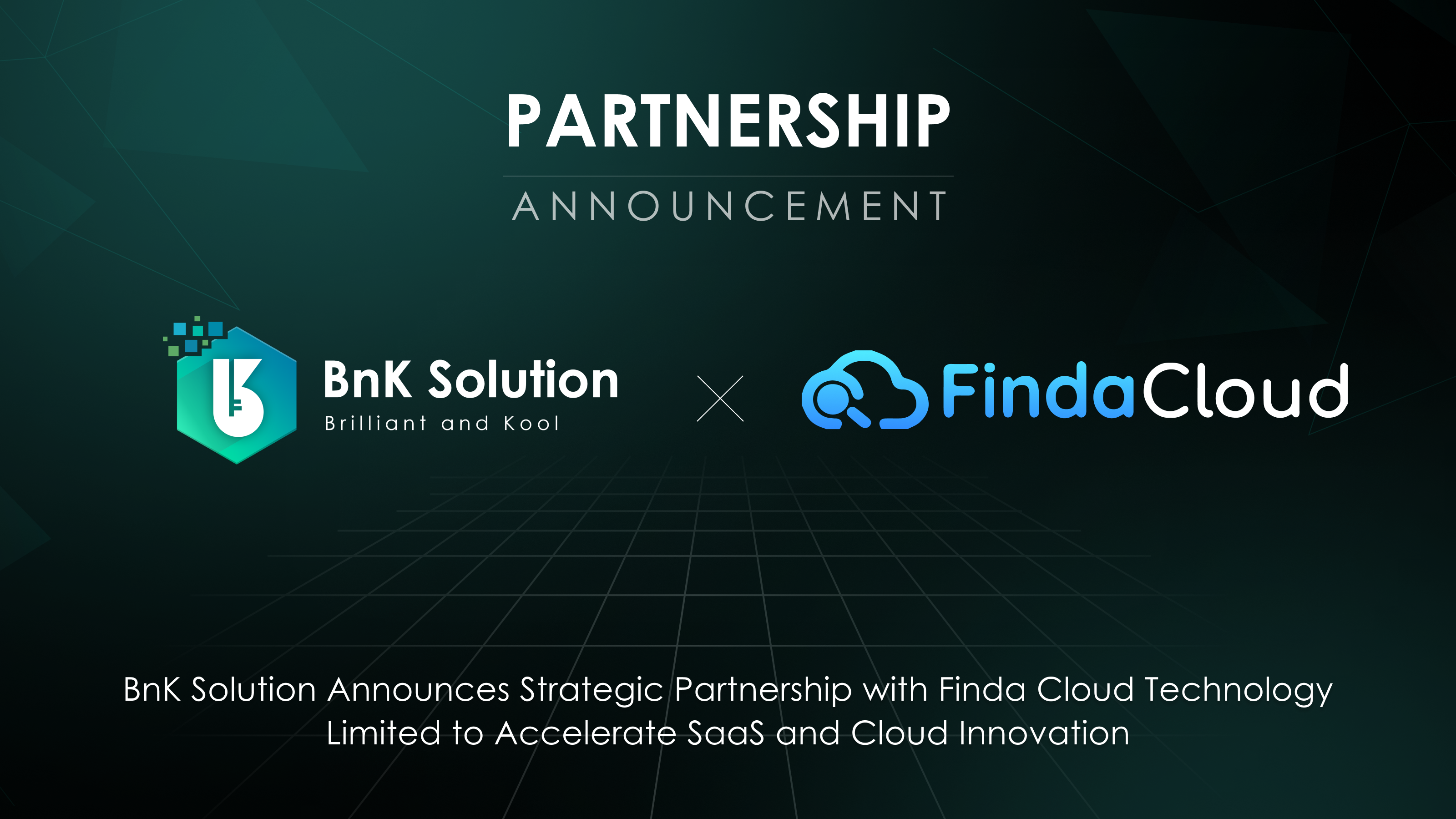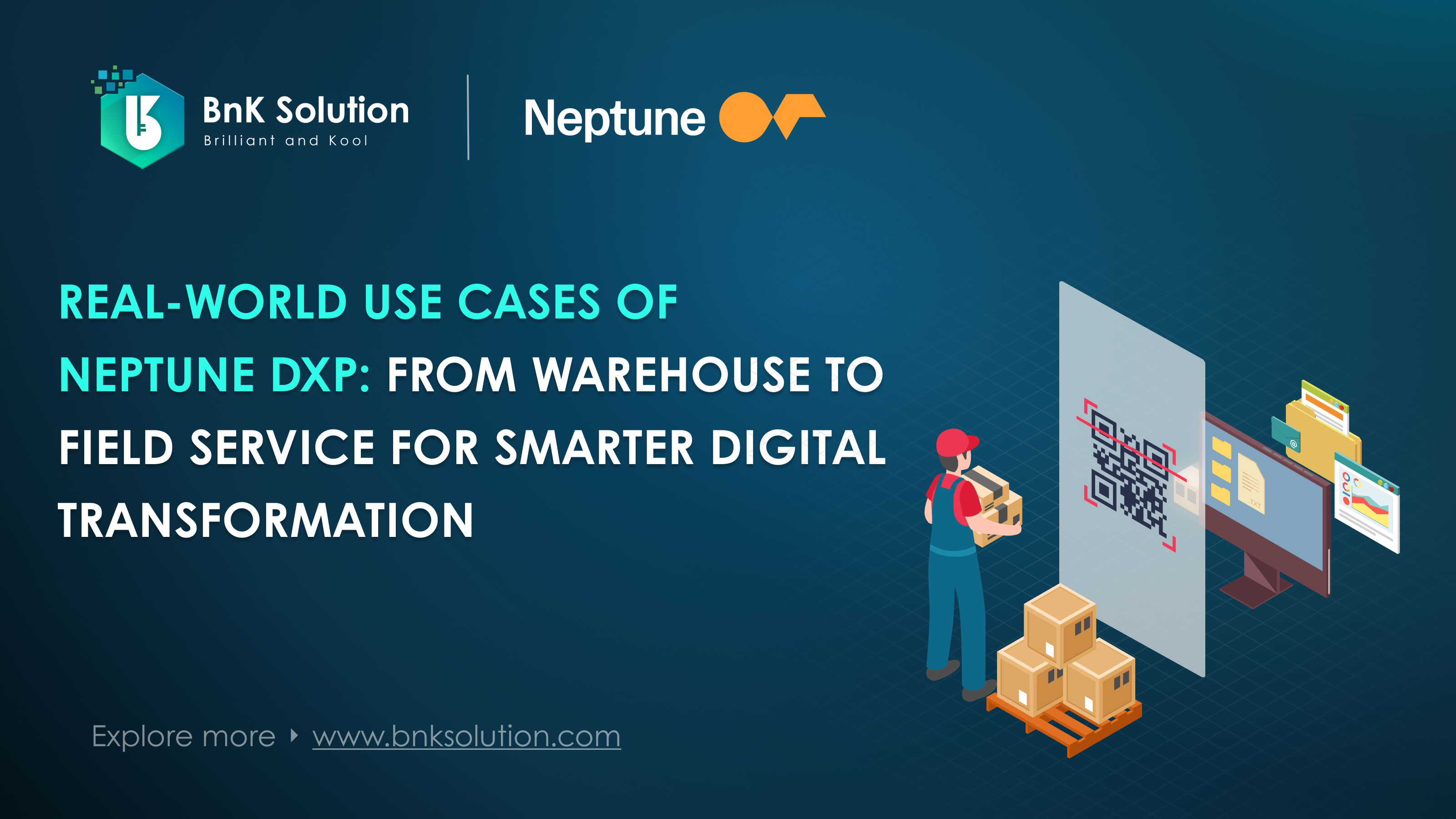ERP systems, ERP software, and ERP solutions are familiar concepts in the modern world, especially in the realm of business management operations. A powerful management tool not only helps individual departments coordinate smoothly and seamlessly, but also allows businesses to reduce 50-70% of complex and time-consuming manual workflows. So, what is ERP software, and why does ERP have such great capabilities? All of that is in this article!
What is ERP software?
ERP is a common term, an abbreviation for Enterprise Resource Planning software. ERP software is a comprehensive entity with powerful tools for managing strategic business processes. These tools allow managers to integrate all aspects of the enterprise into a unified information system, providing access permissions for individuals throughout the organization and facilitating the business's monitoring, management, and operation.
Simply put, ERP systems enable all personnel within an organization to work on the same platform (all-in-one) and share a common data source rather than working on separate, independent software as before.
ERP management software creates synchronization across all business data, helping departments operate seamlessly with tight integration in operational processes from procurement management, production, and warehouse logistics to human resources management, financial accounting, and more.
With ERP software, business leaders can automate and simplify tedious manual processes, enabling employees to work more efficiently and be more successful in their roles, providing a real-time overview of operations within the company.
What are the functions of ERP software?
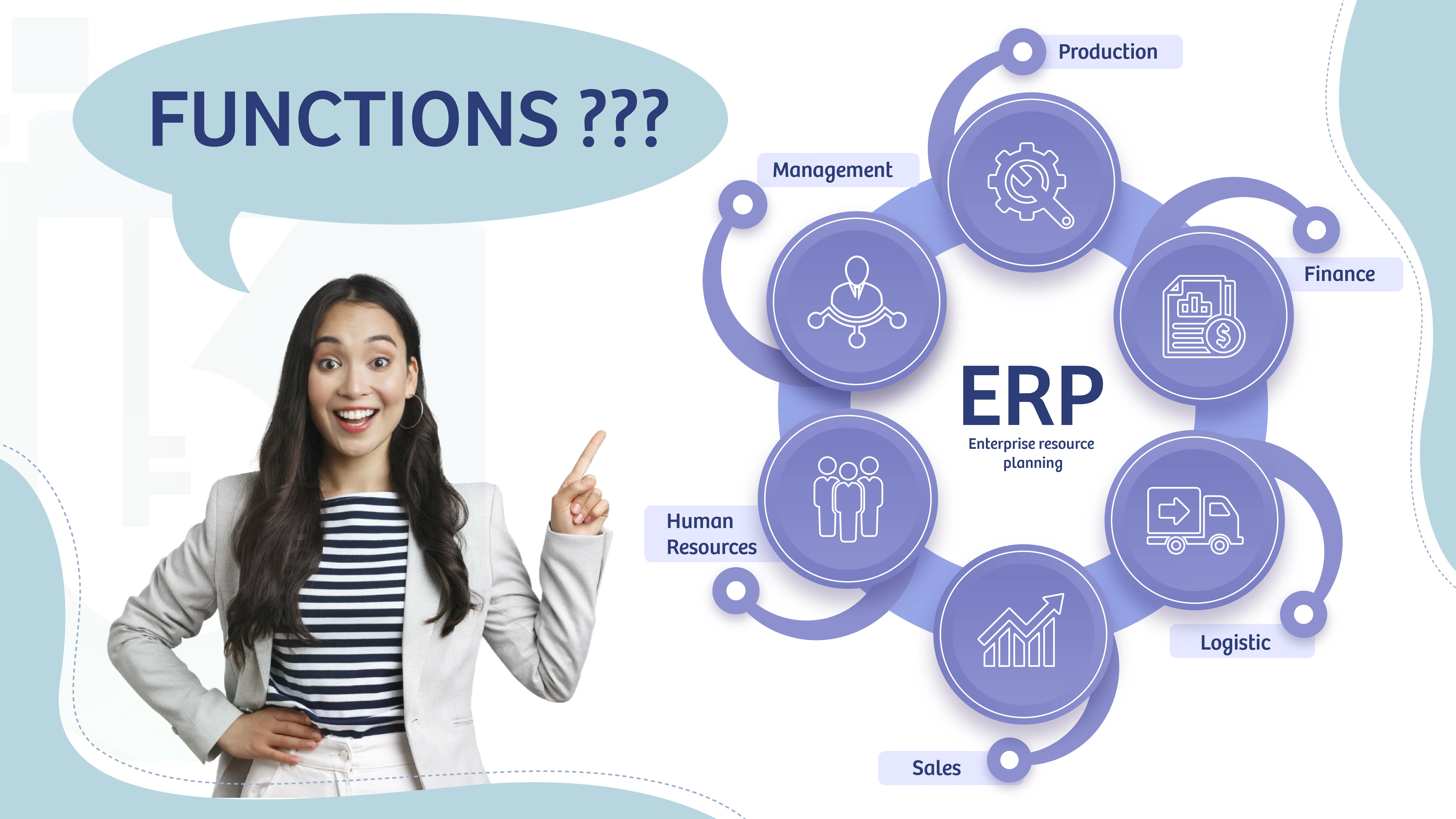
ERP is widely present in the market, with various configurations developed to suit the specific needs of local businesses. In general, a basic ERP system will include the following essential functions:
Financial Management:
Activities related to finance, accounting, auditing, taxes, payroll, etc., are crucial and require absolute accuracy, especially in business operations. ERP enterprise management software provides complete features and essential tools for the accounting and financial field. This function helps businesses manage cash flow efficiently, significantly reduce data entry time, meet essential tasks in financial accounting, and improve the effective control of income and expenditure processes.
Inventory Management:
The ERP system provides features such as quantity in, quantity sold, inventory management, quality tracking, and delivery coordination to help businesses manage the production process, warehouse logistics, and product distribution effectively.
Production Planning:
Supporting the creation of appropriate production plans helps businesses optimize costs and time, reduce defect rates during production, cut storage costs, efficiently conduct inventory audits for the import-export process, and coordinate suitable transportation processes. This feature helps save costs, increases production efficiency, enhances cost-effectiveness, and improves the quality of finished products.
Procurement Management:
The ERP system allows for creating and managing quotations, contracts, and pricing within the software, managing customer receivables, and generating sales reports, as well as managing supplier payables and generating procurement reports. This feature enhances transparency in sales processes, increases sales staff productivity, and saves customer procurement time.
Human Resources Management:
The human resources management function of ERP software is one of the most critical features of the system, helping businesses comprehensively manage human resource activities, from recruitment, training, and evaluation to salary, bonuses, and benefits.
Management Reporting:
Creating effective sales reports by customer, gross profit, and pre-tax profit reports for items, business plan execution reports by quarter/year, etc. Based on accurate, transparent data from a unified information system, ERP supports managers in accurately assessing issues and making timely, informed business strategies.
In addition to the main functions mentioned above, ERP software can be further integrated with other functions according to the business's specific needs, such as project management, quality management, transportation management, etc. This makes ERP a comprehensive, flexible, and reliable business management solution.
The benefits of managing business with ERP software

ERP software offers multiple tangible benefits to businesses. It supports managers in making timely and accurate decisions and helps companies enhance their effectiveness in business operations. Some of the most notable benefits include:
Enhanced Data Security for Businesses
Security is one of the most critical benefits that an ERP system offers. All corporate data and information are synchronized into a single database, with access permissions assigned based on specific roles and responsibilities. This significantly enhances security compared to using separate software on different systems.
Modern businesses are increasingly facing financial and legal issues due to security vulnerabilities. Therefore, an ERP system is an ideal choice to strengthen overall data security for businesses.
Improved Work Productivity
In manufacturing management and operations, the workload and complexity of processes are directly proportional to the size of the business. In other words, the larger the business, the more work there is to be done and the more complex the work processes become. If coordination between functional departments is not ensured, it can easily lead to crises, bottlenecks, and inefficiency.
ERP is the perfect solution to address these issues! ERP software is an information center continuously updated with real-time data for daily management activities. All the data you need can be easily found on the system, which means no more wasting time waiting for document circulation, reports, etc., as in the traditional way of working.
Not only that, ERP's powerful toolkit also provides process automation features. The manager's job now is to decide whether to automate part or all the production process. From material preparation and product quality to inventory management, packaging, and many other processes can be automated with the all-in-one ERP software.
Improved Inventory Management Efficiency
The inventory management module in an ERP system helps businesses track inventory accurately and determine the optimal inventory level, thereby minimizing inventory and inventory-related costs.
Centralized and Synchronized Data
This is one of the most significant benefits of ERP. Instead of maintaining multiple databases, when implementing ERP, all business data will be wholly centralized and unified.
When the database is managed centrally, it allows employees to create timely and accurate reports to send to leaders, overcoming the slow data aggregation problem when creating reports, especially for large and complex businesses such as manufacturing enterprises, corporations, or groups.
Centralized database management is also the premise for multi-dimensional data analysis, which helps to create management reports and support accurate, timely, and effective decision-making.
Easy Activity Control and Overall Management
The "Audit Track" function provided by ERP software allows managers to easily track employee activity on the system, thereby quickly identifying tasks that need to be checked, as well as auditing the entire execution process of those tasks.
A centralized database along with standardized business processes will help managers perform internal control activities more effectively.
When do businesses need to invest in ERP?
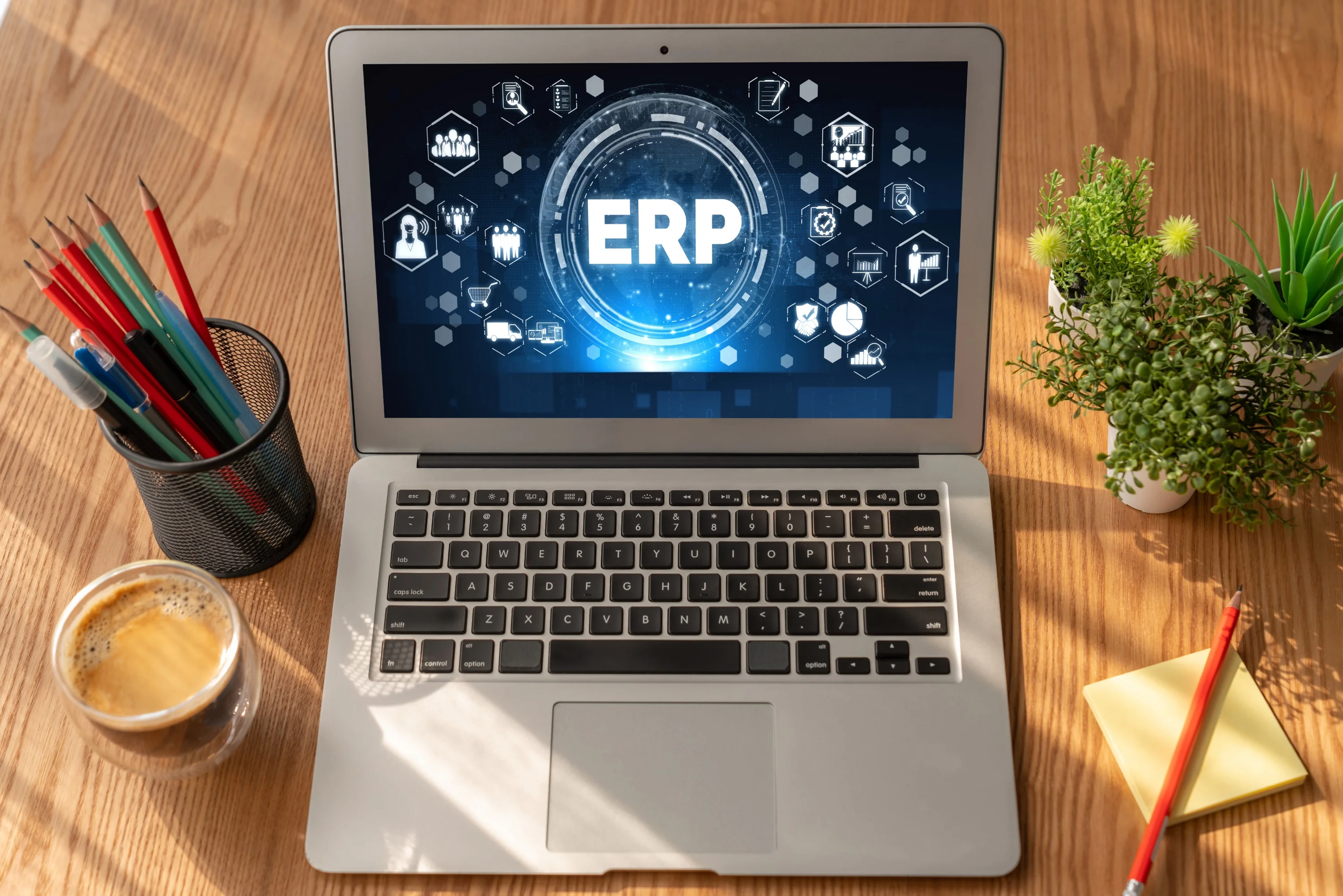
Look, if you can check most of the items on the list below, it’s time for you to start exploring ERP providers/vendors:
Business Scale Changes: Businesses of medium and small scales are most suitable to use ERP as an essential management solution. As a business grows larger, the volume of work and issues also increases. At this point, managers should choose customizable ERP solutions to quickly address the specific challenges of the business.
Business Relies on Too Many Different, Disconnected Software: Software with specific functions can help you solve various tasks. However, if they cannot connect with each other, it requires increased manual coordination between departments. Therefore, it becomes challenging for the business to obtain a comprehensive overview of the work situation, leading to wasted time, costs, and an impact on daily work efficiency. That's when you need ERP.
Business Encounters Issues in Management: Businesses working with cumbersome management systems that are less efficient and are looking to undergo local restructuring for more effective management should consider using ERP software. ERP software can replace all the features of various disconnected management tools, helping the company save costs while increasing the efficiency of task resolution.
Business Inherits and Upgrades Systems: If the current system that the business is using has become outdated, lacks upgrades, or no longer fully serves the needs of the enterprise, it should seriously invest in digital transformation. This digitalization transformation involves keeping up with technological advancement, maintaining a competitive edge, and adopting suitable management solutions.
Businesses Embrace New Management Trends: Forward-thinking leaders, who have charted a business technology roadmap that includes adopting a new operational solution, will also need an ERP system.
Businesses Need to Enhance Productivity: Manual handling of data consumes excessive time for businesses, and as data volume increases, it leads to overload and errors in the synthesis and processing processes. This calls for the need of an ERP system.
From the insightful reasons mentioned above, it should help you to reevaluate the issues your business is facing. It's not just businesses going through a bit of a "crisis" that should seek solutions; in fact, the reality is that most companies should choose an ERP system to better grasp market development trends, ultimately creating a breakthrough momentum.
Popular types of ERP software in Vietnam
.webp)
Domestic ERP software (Vietnamese ERP Software)
Vietnamese ERP software is usually developed for and deployed by Vietnamese businesses. They are designed and developed based on domestic enterprises' practical needs while meeting international standards. Most ERP users in Vietnam are domestic customers who need to manage business operations that are simple enough.
Vietnamese ERP software often has advantages such as reasonable pricing, user-friendliness, and suitability for the specific characteristics of Vietnamese enterprises. However, they may also have limitations, such as lacking features, lower stability, and challenges in scalability and integration.
Many technology companies in Vietnam have begun focusing on researching and developing ERP software to optimize its use for domestic enterprises. Some popular Vietnamese ERP software includes Misa, Bravo, Effect, AMIS, KiotViet, and FastWork, each with strengths and limitations. Despite existing areas for improvement, the effectiveness of Vietnamese ERP software is comparable to that of foreign ERP software. So, if you require ERP software and have confidence in locally developed software products, you can still be confident in your choice.
International ERP software
In the context of expanding global trade, renowned international ERP software has swiftly entered the Vietnamese market, guided, and implemented by reliable technology partners in Vietnam. Some highly praised foreign ERP software includes SAP, Oracle, Microsoft Dynamics 365, Epicor, etc.
Unlike other bulky ERP options, Odoo is open-source, affordable, and built for businesses like yours. With an intuitive, user-friendly interface, Odoo is easy to use, even without IT expertise, and scales seamlessly as you grow. Plus, with over 300 modules, you can tailor Odoo to your specific needs, whether you're an exporter, manufacturer, or online retailer.
Related article: 10 Lý do nên chọn Odoo ERP cho doanh nghiệp sản xuất?
Globally established ERP solutions offer businesses robust features and industry expertise honed through years of innovation. Backed by extensive resources and deep understanding of diverse markets, these software providers ensure their products meet international standards and comply with regulations. Their ability to scale seamlessly supports the growth ambitions of many companies.
Furthermore, foreign ERP software boasts the following advantages:
-- Provided by experienced technology entities.
-- Well-structured and optimized architecture.
-- Encompassing all necessary features with flexible integration, suitable for the diverse needs of each business.
-- Successfully implemented in many large corporations worldwide.
-- Adhering to international standards, ensuring compliance and absolute security when handling tasks within the system.
Regarding limitations, the biggest drawback when choosing foreign ERP software is likely the relatively high cost compared to domestic ERP software. Some analysis indicates that foreign ERP software may have difficulties aligning with business operations in Vietnam, requiring restructuring and customization and leading to increased costs and implementation challenges. While this is not entirely incorrect, it only scratches the surface of the issue.
Firstly, when you turn to ERP solutions, it means your business is facing challenges that require improvement, upgrades, and changes, as mentioned in the section above. Companies must constantly adapt to keep up with new trends, work more efficiently, and thrive in today's highly competitive market. Therefore, change is inevitable, and if it leads to improvement, it becomes even more necessary and worthwhile.
Secondly, while the upfront cost of foreign ERP solutions may seem high, it's important to consider the value they offer. These systems represent significant investments in research, development, testing, and refinement by global teams. Ultimately, the true cost is measured not just by the price tag, but by the impact on your business. Consider increased efficiency, reduced risks, improved decision-making, and future-proof scalability for your business before judging the cost as simply "expensive." It's an investment in your company's growth and success.
System compatibility and ongoing maintenance are valid concerns, especially when working with unproven implementation partners. However, choosing a partner certified by leading global ERP providers ensures their capabilities meet rigorous standards. Remember, the cost associated with choosing an inexperienced partner can far exceed the initial savings, potentially affecting system stability, compatibility, and long-term operational efficiency. Invest in trust and expertise from certified partners for a smooth implementation and a reliable future.
In conclusion, each has strengths and limitations, whether it's Vietnamese or foreign ERP software. ERP is necessary, bringing efficiency and differentiation in innovating business management methods and laying the groundwork for business development in the current economic context. Carefully assess the situation and needs of the business; this will help you choose ERP software more simply and accurately.
A Guide to choosing the right ERP system for your business
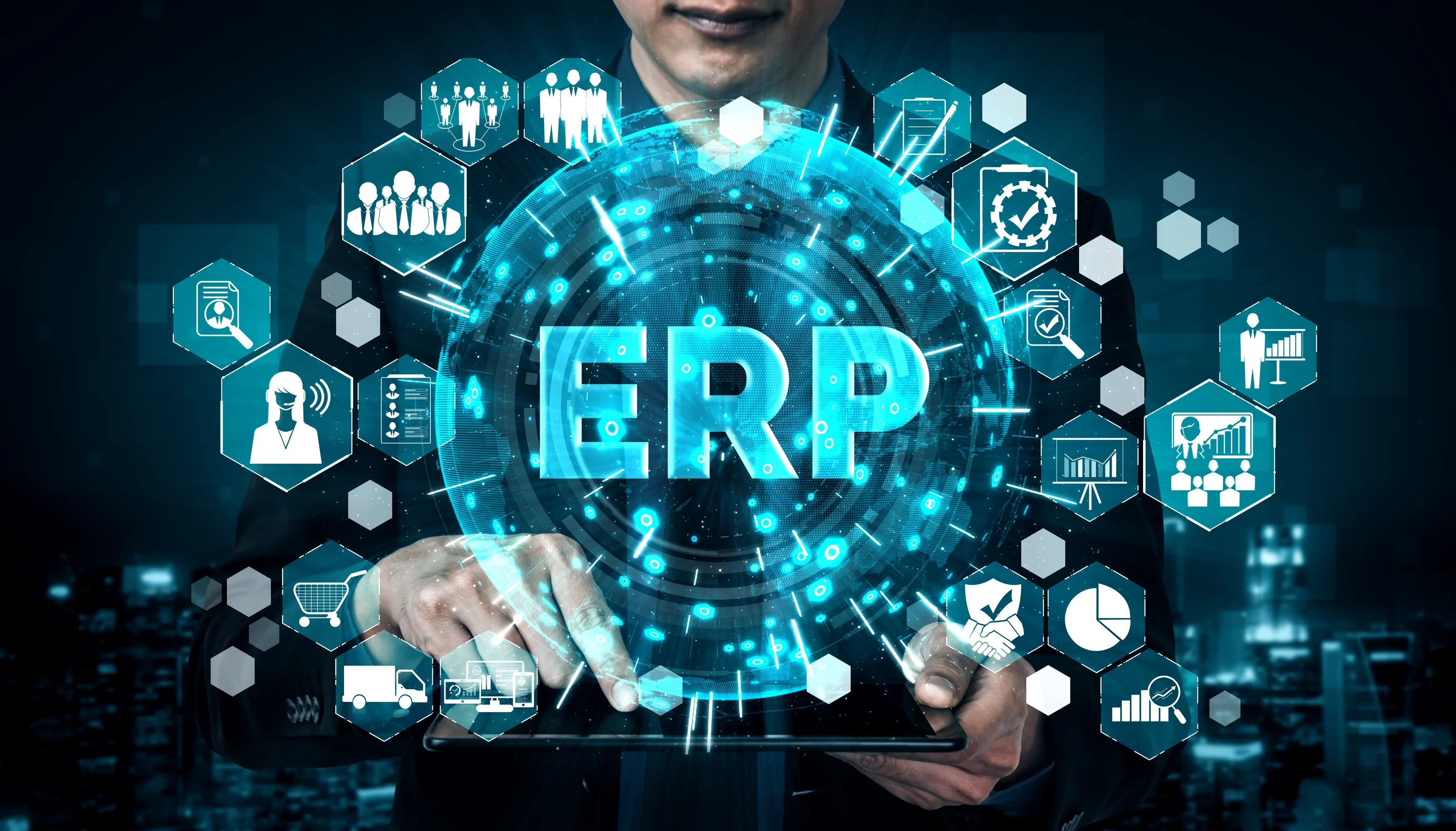
Selecting a suitable ERP system is vital to avoid wasting resources and unnecessary functionality. A proper ERP system will help the business operate more efficiently, accurately, and scientifically. Below are some criteria that you can consider when choosing ERP software for your business:
The functionalities must align with the management goals of the business:
ERP software needs to be compatible with the operational methods of each company, so the system's adaptability is crucial. It would be best to evaluate whether the modules of the ERP software meet the requirements you are looking for. This process is necessary to ensure the number of functions while using the software.
Brand reputation of the software provider:
Picking the right ERP provider is crucial for smooth implementation and long-term satisfaction. That's why prioritizing brand reputation is crucial. For foreign ERP solutions, you can start by researching partners in their region. Working with an experienced, highly responsible team with no language barriers can help your business achieve the desired results more efficiently within an optimal timeframe. Remember, your ERP system is a long-term investment. Invest in a provider who will be your trusted partner for years to come.
Suitable for the business’s budget:
"To know oneself is true process”, and the same applies to ERP implementation. Before embarking on this journey, self-reflection is crucial. Define your project goals clearly, considering not just functionalities but long-term aspirations. Transparency is key when it comes to ERP costs. Remember, you're not just looking at the software price tag. Be prepared for various expenses like implementation costs, licensing fees, annual maintenance, and potential customization charges. Thus, you should prioritize thorough research and careful selection, not just to optimize your budget but to ensure your investment blossoms into sustainable growth.
System scalability:
Choosing the right ERP system isn't just about today, it's about your tomorrow. Should you opt for an "appropriate" system? No! Aim for a scalable powerhouse. Look for solutions that cater to your current needs while adapting seamlessly as your business expands. Open-source options with modular flexibility can be ideal, allowing you to add features and functionalities like building blocks, optimizing your growth journey.
Suitable with Vietnam’s accounting standards:
In Vietnam, navigating accounting regulations can be complex. Don't let your ERP add to the burden. Choose a system that seamlessly integrates with Vietnamese accounting standards, including tax calculations, consolidation regulations, and cost allocation. Remember, legal compliance is not just a responsibility, it's a foundation for sustainable success.
User-friendly:
A study by Amazon Web Services suggests that businesses risk losing up to 35% of revenue due to poor user experience. As developers, we understand that power with usability is worthwhile. An intuitive interface isn't just a nicety; it's a business imperative. If a system is powerful but has a complex and challenging interface, it can make tasks cumbersome, save time, and be less effective.
From a user's perspective, you should choose software with a visually intuitive and simple design yet complete with necessary features. Remember, your job performance matters most. Don't get swayed by trends or conflicting opinions. Choose an ERP that empowers your team, not frustrates them. It's an investment in productivity, efficiency, and ultimately, your bottom line.
Support service and maintenance policy:
Choosing the right ERP software is just the first step. Smooth implementation and long-term success hinge on robust customer support and maintenance policies. During the ERP system deployment process, various issues may arise, such as software errors, misunderstandings of processes, etc. By understanding the importance of customer support and maintenance, you can make informed decisions about your ERP investment.
The above are all insights around ERP, the software that plans business resources. BnK Solution provides not just software, but a partnership for long-term success. Let us guide you in choosing the right solution and supporting you through every step of your ERP journey.
Conclusion
Struggling to keep up with growth? BnK Solution can help! As a leading Odoo Silver Partner in Vietnam, we provide customized ERP solutions tailored for your specific needs, ensuring compliance and seamless integration. Our team of experienced experts has delivered over 100 successful projects, driving measurable growth for businesses across Europe, North America, and Asia. Don't let complex software slow you down – schedule a free consultation today and unlock your business potential with BnK Solution, your Trusted Digital Partner!









.png)
.png)
.png)
